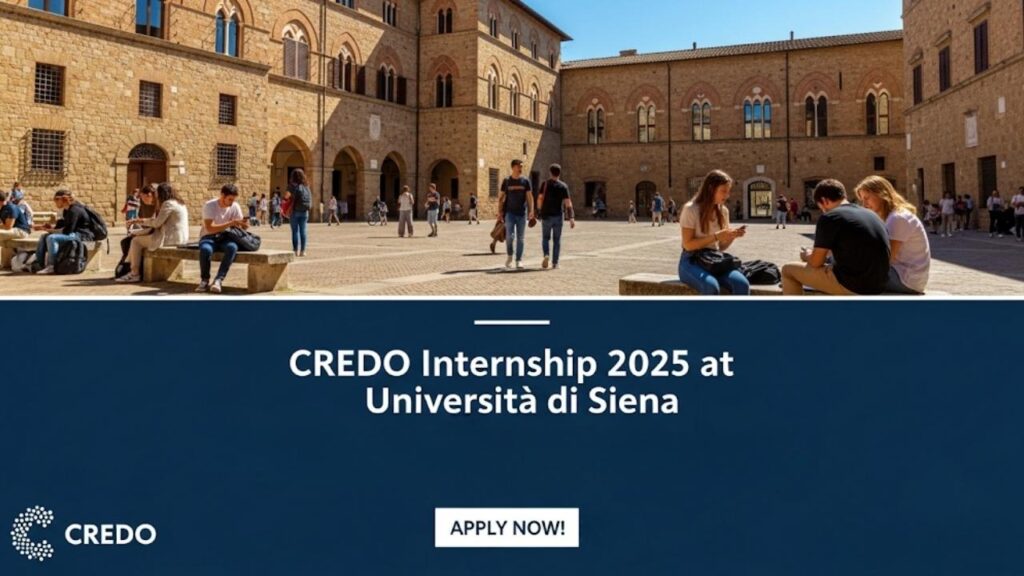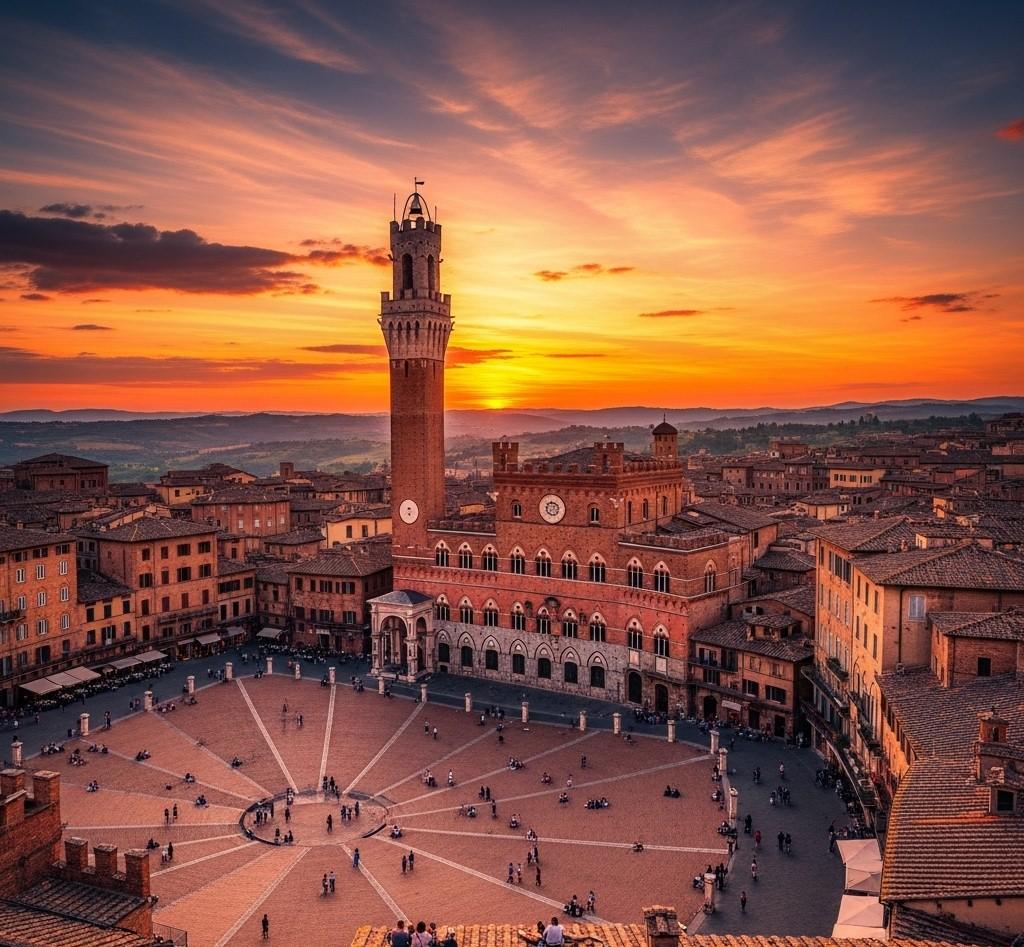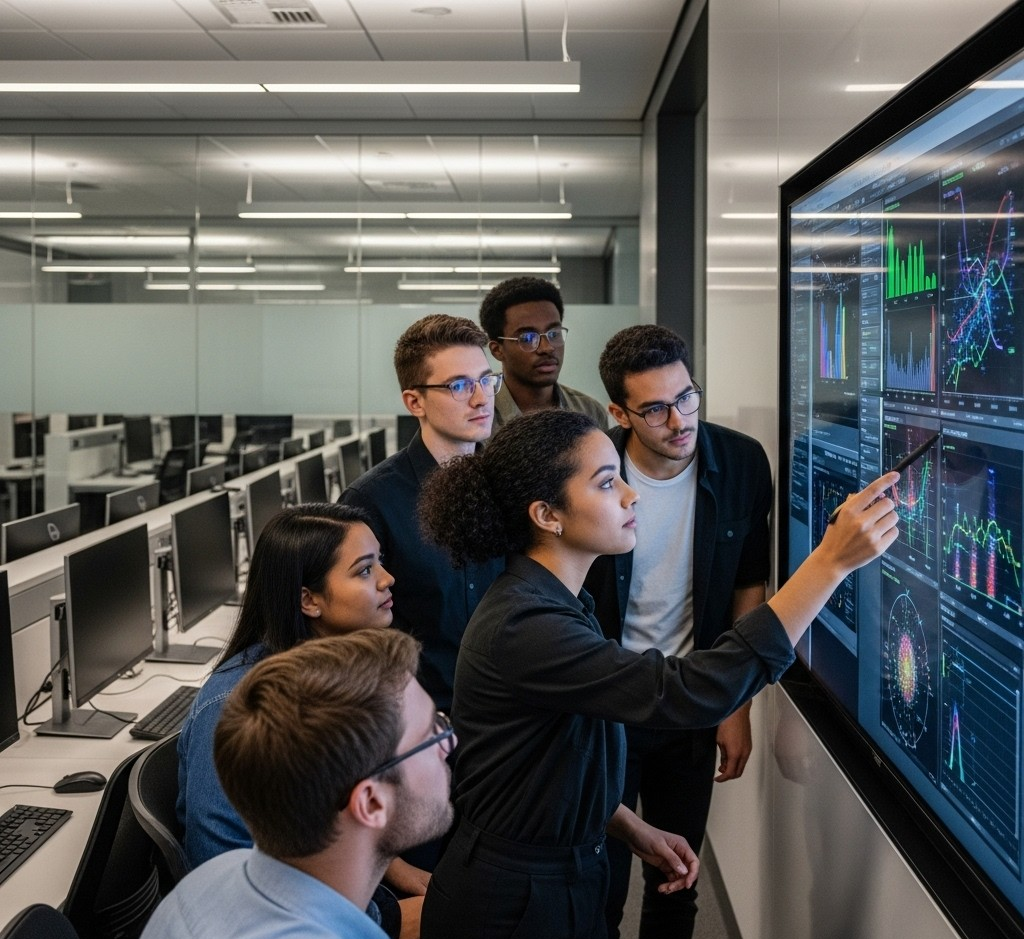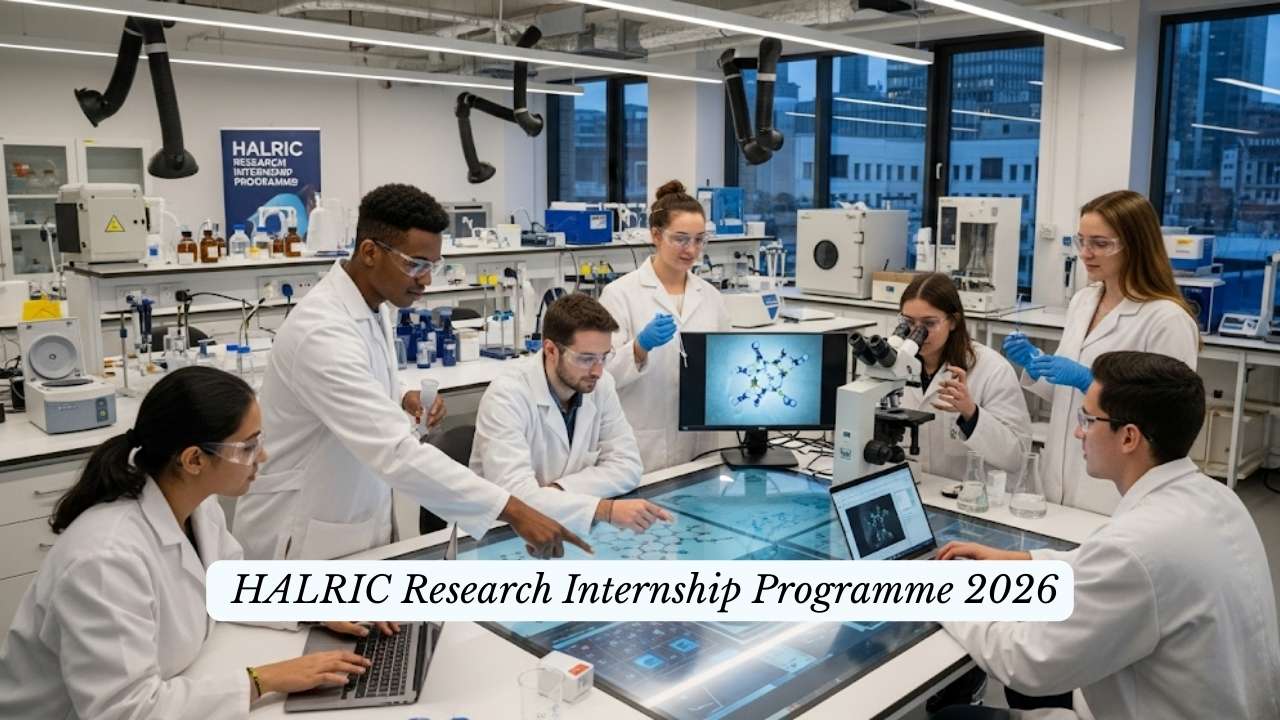The CREDO Internship 2025 at Università di Siena offers a remarkable opportunity for aspiring physicists and data scientists to dive into the world of high-energy astrophysics. For many students, the idea of conducting real-world research in a historic Italian city feels like a distant dream. But it’s more achievable than you might think. This guide is designed to be your trusted companion, breaking down the entire process from understanding the project to polishing your application. We’ll provide the clear, actionable steps you need to turn this incredible opportunity into your reality.

CREDO Internship 2025 at Università di Siena
| Key Fact | Detail |
| Field of Research | Astrophysics, Particle Physics, Data Science, Citizen Science. CREDO Project Official Website |
| Host Institution | Università di Siena, Department of Physical Sciences, Earth and Environment. Università di Siena Official Website |
| Location | Siena, Tuscany, Italy |
| Typical Duration | 2-3 months, usually during the summer |
| Primary Focus | Analysis of data from the Cosmic-Ray Extremely Distributed Observatory (CREDO) |
The CREDO Internship 2025 at Università di Siena is more than just a line on a CV; it’s a launchpad for a career in science and an unforgettable cultural adventure. By focusing on the project’s unique mission and carefully tailoring your application to showcase your relevant skills and genuine passion, you can put yourself in a strong position to be selected.
What is the CREDO Internship? A Glimpse into the Cosmos
Before you can write a compelling application, you need to understand the mission. The CREDO project isn’t just another research initiative; it’s a global scientific collaboration. CREDO stands for Cosmic-Ray Extremely Distributed Observatory. Its goal is to use a worldwide network of detectors—including smartphone cameras!—to search for cosmic-ray ensembles, which are vast showers of particles that rain down on Earth from space.
Scientists believe that studying these showers could help unravel some of the deepest mysteries of our universe, from the nature of dark matter to ultra-high-energy phenomena. By joining the team at the Università di Siena, you won’t just be an intern; you’ll be an active participant in a pioneering, global-scale experiment.
Your role as an intern will likely involve:
- Analyzing vast datasets collected from detectors around the world.
- Developing and testing new software for data processing and simulation.
- Working with machine learning algorithms to identify patterns.
- Collaborating with an international team of leading physicists.
Why Siena? Combining World-Class Research with Tuscan Charm
Let’s be honest: the location is a significant part of the appeal. Siena is not just a backdrop for your research; it’s an enriching part of the experience. The Università di Siena, founded in 1240, is one of the oldest and most prestigious universities in Europe. Its Department of Physical Sciences, Earth and Environment is a hub of innovative research, providing a stimulating intellectual environment.

Imagine spending your summer discussing particle physics in a state-of-the-art lab and then walking through medieval streets to enjoy a coffee in the Piazza del Campo, one of Italy’s most beautiful squares. This blend of rigorous science and rich culture is what makes this internship so unique. Living in Tuscany offers an unparalleled opportunity to immerse yourself in Italian art, history, and cuisine, creating memories that will last a lifetime.
Are You the Right Candidate? Eligibility and Key Skills
While specific requirements for the 2025 cycle will be listed on the official announcement, candidates for the CREDO internship typically share a common profile. This is your chance to see how your skills and experience align with the project’s needs.
Successful applicants generally have:
- Academic Background: Currently enrolled in or recently graduated from a Bachelor’s or Master’s program in Physics, Astrophysics, Computer Science, or a related field.
- Programming Proficiency: Strong skills in
Pythonare often essential. Experience with data analysis libraries likeNumPy,Pandas, andMatplotlibis a significant plus. - Data Analysis Skills: A foundational understanding of statistical methods and data analysis techniques. Previous experience with large datasets or machine learning is highly desirable.
- A Passion for Research: A genuine and demonstrable interest in particle physics, astrophysics, or the specific goals of the CREDO project.
- Language Skills: A good command of English is required for scientific collaboration. Knowledge of Italian is a bonus for daily life but is not typically a professional requirement for the internship.
How to Craft a Winning Application for the CREDO Internship 2025 at Università di Siena
Your application is your personal introduction to the selection committee. It needs to be professional, compelling, and authentic. Let’s break down the key components.
Decoding the Application Materials
Typically, an application will require a Curriculum Vitae (CV), a letter of motivation, and your academic transcripts. Each document serves a distinct purpose in telling your story.
Your CV: More Than Just a List
Your CV should be a concise summary of your academic and technical achievements. Tailor it specifically for this internship.
- Highlight Relevant Coursework: List advanced courses in physics, programming, and mathematics.
- Detail Your Technical Skills: Create a dedicated section for programming languages (
Python,C++), software (ROOT,Geant4), and data analysis tools. Be specific. - Showcase Research Experience: If you have any previous research experience, describe your project, your specific contributions, and the skills you developed. This is prime real estate on your CV.
The Heart of Your Application: The Motivation Letter
This is where you move beyond lists and show your personality and passion. A generic letter simply won’t do. In my experience advising students, the strongest motivation letters always connect a personal passion for a niche topic—like cosmic-ray detection—with the specific research happening at the host institution.
Your letter should answer three fundamental questions:
- Why CREDO? Show that you’ve done your homework. Mention specific aspects of the project that excite you. Is it the citizen science approach? The search for cosmic-ray ensembles? Be specific.
- Why you? Connect your skills and experiences directly to the project’s needs. Don’t just say you know
Python; explain how you’ve used it to analyze data in a past project and how you could apply that skill to CREDO’s datasets. - Why Siena? Briefly mention why the opportunity to work at the Università di Siena, within its esteemed physics department, appeals to you. This shows you’ve considered the entire opportunity, not just the research topic.
What to Expect: A Day in the Life of a CREDO Intern
An internship at CREDO is an immersive experience. While every day is different, you can expect your time to be a mix of independent work and collaborative effort. You might spend your morning debugging a Python script for data visualization, your afternoon in a video conference with collaborators from Poland or the United States, and the end of your day analyzing a new batch of data for potential anomalies.

You will be part of a team, contributing to a real, ongoing scientific investigation. The environment is designed to be educational and supportive, giving you both the guidance you need and the freedom to explore your own ideas.
Your Ultimate Guide to Sophia University Scholarships 2026 for International Students
Your Complete Guide to the International Postdoctoral Forrest Fellowships 2026
FAQ
Q1: Is the CREDO internship funded?
A: Past internship opportunities with CREDO collaborators have often included a stipend to help cover living expenses. However, funding details can vary each year. You must check the official 2025 internship announcement for precise information on stipends or financial support.
Q2: What is the typical application deadline?
A: Application deadlines for summer internships are typically in the early spring (e.g., March or April). This information is highly time-sensitive, so monitor the official Università di Siena physics department and CREDO project websites for the definitive CREDO Internship 2025 timeline.
Q3: Do I need to speak Italian to be an intern?
A: The working language of the research group is English, and a strong command of English is essential for collaboration. While you do not need to be fluent in Italian for the internship work itself, learning some basic Italian phrases will greatly enhance your daily life and cultural immersion in Siena.
Q4: What specific research topics might I work on?
A: Research topics are tied directly to the CREDO project’s goals. This could include searching for correlations in cosmic ray data, improving the machine learning algorithms used for particle track identification in smartphone data, or developing simulations of extensive air showers. The exact project is often determined based on the intern’s skills and current project needs.










